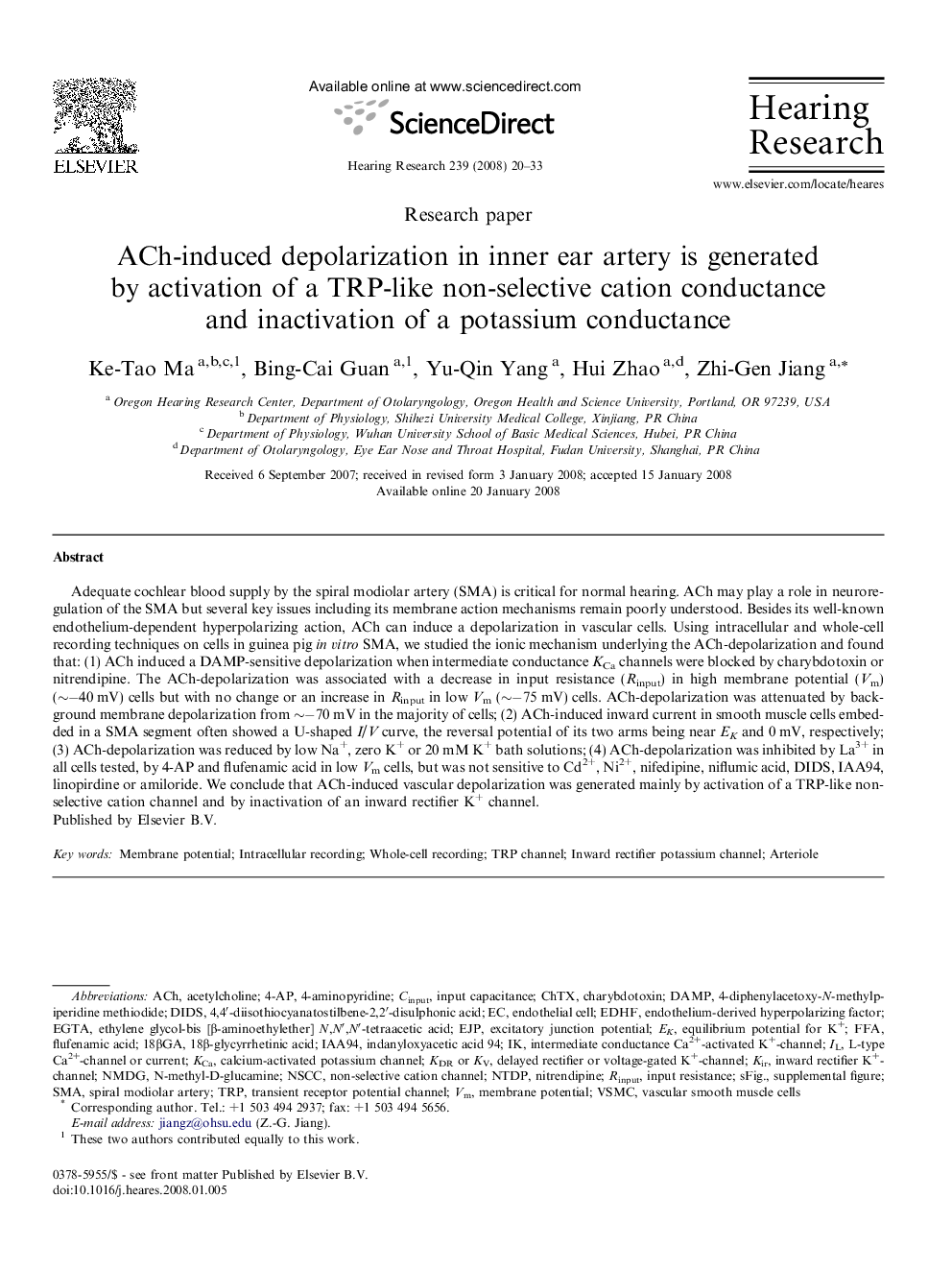| Article ID | Journal | Published Year | Pages | File Type |
|---|---|---|---|---|
| 4356086 | Hearing Research | 2008 | 14 Pages |
Adequate cochlear blood supply by the spiral modiolar artery (SMA) is critical for normal hearing. ACh may play a role in neuroregulation of the SMA but several key issues including its membrane action mechanisms remain poorly understood. Besides its well-known endothelium-dependent hyperpolarizing action, ACh can induce a depolarization in vascular cells. Using intracellular and whole-cell recording techniques on cells in guinea pig in vitro SMA, we studied the ionic mechanism underlying the ACh-depolarization and found that: (1) ACh induced a DAMP-sensitive depolarization when intermediate conductance KCa channels were blocked by charybdotoxin or nitrendipine. The ACh-depolarization was associated with a decrease in input resistance (Rinput) in high membrane potential (Vm) (∼−40 mV) cells but with no change or an increase in Rinput in low Vm (∼−75 mV) cells. ACh-depolarization was attenuated by background membrane depolarization from ∼−70 mV in the majority of cells; (2) ACh-induced inward current in smooth muscle cells embedded in a SMA segment often showed a U-shaped I/V curve, the reversal potential of its two arms being near EK and 0 mV, respectively; (3) ACh-depolarization was reduced by low Na+, zero K+ or 20 mM K+ bath solutions; (4) ACh-depolarization was inhibited by La3+ in all cells tested, by 4-AP and flufenamic acid in low Vm cells, but was not sensitive to Cd2+, Ni2+, nifedipine, niflumic acid, DIDS, IAA94, linopirdine or amiloride. We conclude that ACh-induced vascular depolarization was generated mainly by activation of a TRP-like non-selective cation channel and by inactivation of an inward rectifier K+ channel.
